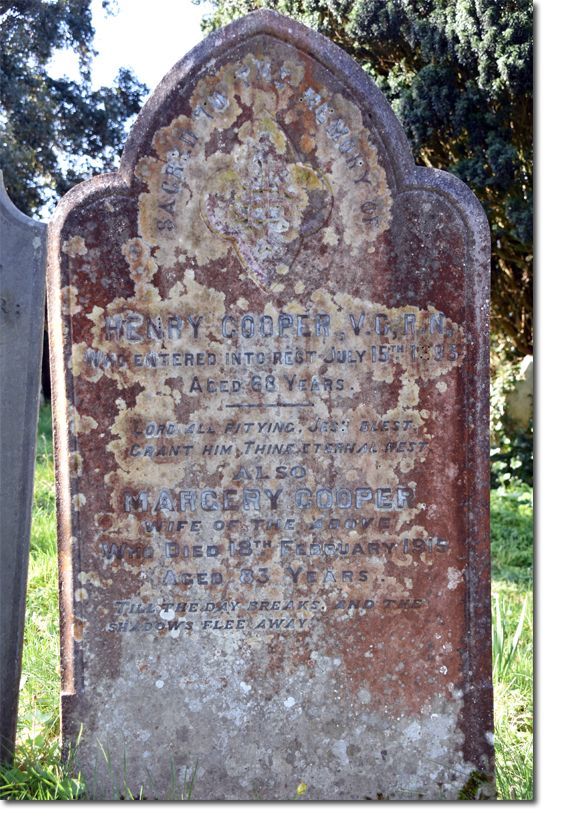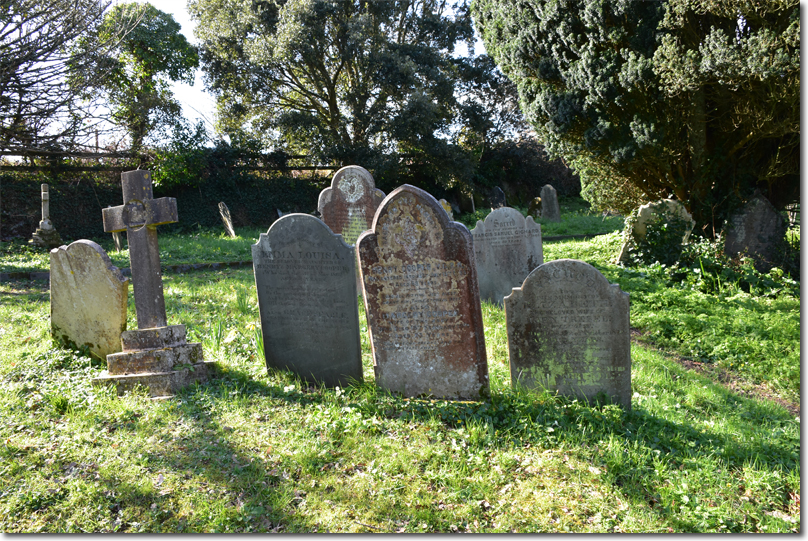|
|

 |
|
Gazetted citation:
The service was performed while the town of Taganrog was being bombarded by the boats of the Fleet, and is thus recorded by Captain Lyons :— "Lieutenant Cecil Buckley, in a four-oared gig, accompanied by Mr. Henry Cooper, Boatswain, and manned by volunteers, repeatedly landed and fired the different stores and Government build- ings. This dangerous, not to say desperate service (carried out in a town containing upwards of 3,000 troops, constantly endeavouring to prevent it, and only checked by the fire of the boats' guns), was most effectually performed."
The Naval and Military Record says of Henry Cooper: His career was of a very exciting and stirring character. Entering the Navy in the year 1841, he served as boatswain for 23 years, and received for his gallant services at different times the much coveted Victoria Cross, as well as the Legion of Honour, the Black Sea, Turkish and Baltic Medals, with clasps for Sebastopol and the Sea of Azoff. Prior to the Crimean War he had been engaged in some exciting adventures in other parts of the world. In the year 1848, while serving in the Philomel, under Commander Wood , he was engaged in a boat action against a piratical slaver on the West Coast of Africa. The boat was riddled with grape-shot from stern to stern - one man was killed and nine others wounded, but notwithstanding this and a desperate resistance on the part of the pirates, the slaver was captured and her crew of sixty men were made prisoners. Before the Miranda left Plymouth for the Black Sea she was saluting the Port Admiral when an explosion occurred, and a seaman named John Selvey was thrown overboard. Mr. Cooper at once jumped in after him, and succeeded in keeping him afloat till a boat put out and rescued them. Selvey's hands had been blown off. In the year 1854 Mr. Cooper served in the White Sea, and assisted in the destruction of the town and forts of Kola, the capital of Russian Lapland, and also at the destruction of the forts of Salonika. He was present also at the attack on the fort of Arabat in the Sea of Azoff on the 28th~lay,1855. The fort, which mounted 30 guns, was captured and the magazine blown up. Next day he formed one of aboat expedition under Lieutenant Mackenzie, and took an active part in setting fire to 73 vessels and the corn stores at Genitchi, a town at the entrance to the Putrid Sea, where the enemy had six pieces of cannon and 200 men in addition to a battalion of infantry and Cossacks. In this expedition Captain Lyons gave him the command of the 2nd cutter and all the combustibles for setting fire to the enemy 's shipping. This dangerous and desperate task was successfully accomplished and the boats got safely away, although in doing so they had to run the gauntlet of a heavy fire of grape and canister from the enemy. On the 3rd of June, 1855, Mr . Cooper took part in the expedition against Taganrog. Under the command of Lieutenant Buckley he landed in a four-oared gig and fired the stores, the Government buildings, and the shipping in a town containing 3,000 troops. Kinglake thus describes the deed for which Mr. Cooper received not only the Victoria Cross but also the Legion of Honour: "With a separate division of light boats, carrying rockets and guns on board, Lieutenant Mackenzie covered the approach of Lieutenant Buckley, who, in a four-oared gig, accompanied by Mr. Henry Cooper, Boatswain, and manned by volunteers, landed and repeatedly fired the stores and Government buildings. By three o'clock in the afternoon all the long ranges of grain, planks and tar and the vessels in the docks were in a blaze, as were also the Customs House and other Government buildings . While engaged in two night attacks at Sebastopol, Capain Lyons was mortally wounded, and Henry Cooper with great bravery caught up with the wounded officer and carried him out of range of the enemy. As Boatswain of the Miranda,he was present at an attack on the forts opposite Kertch. He had charge of the boats, and after landing and driving the Russians from their position, he was the first to plant the British colours on the enemy's ground. |
 |
Empire in Your Backyard: Plymouth Article
Armed Forces | Art and Culture | Articles | Biographies | Colonies | Discussion | Glossary | Home | Library | Links | Map Room | Sources and Media | Science and Technology | Search | Student Zone | Timelines | TV & Film | Wargames